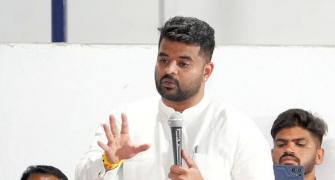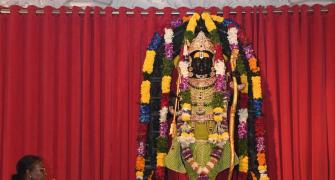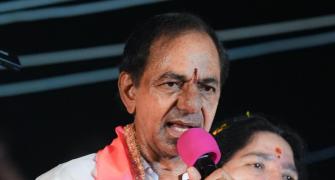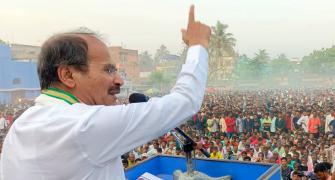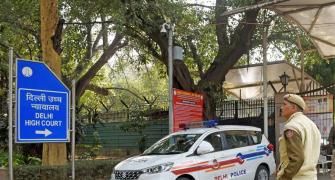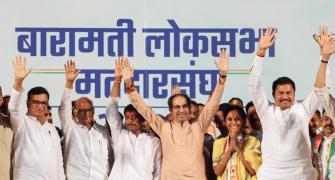At the 16th annual convention of American Federation of Muslims of Indian Origin in New York on Sunday, speakers included university professors, medical doctors and entrepreneurs. They acknowledged that the members of the community in India have been lagging behind in terms education and even basic literacy.
All of them urged the members of AFMI and non-resident Muslims from India to come forward and contribute their mite to spreading education among Muslims in India.
"There is no contradiction between Islam and science and the ulemas and imams have to understand this. In fact, science and Islam go hand in hand," Razia I Ahmed, a panelist at the day-long conference, said. She called for simultaneous teaching of religious education, as well as science and mathematics, in madrassas in India.
Similar views were expressed by Sultan Hameed, professor, Institute for Terrestrial and Planetary Atmospheres, Stony Brook University.
"We convinced ourselves that modern knowledge is not for us, but Islam does not say so. Muslims in India have to do a lot of catching up," he said.
Hameed said although awareness about education has increased among the community in India, there are still many Muslims who believe that girls should not go to college. "This is not borne out by Islam," he said.
"People, somehow, tend to interpret Islam as a way to justify the current position of Muslim women in India to stay where they are. This, unfortunately is a trap," he added.
Speakers reeled out statistics to compare the rate of education among Muslims vis-a-vis the rest of the population to drive home the point that much needs to be done to bridge the educational gap, especially among Muslim women.
Najma Sultana, a former president of AFMI and a panelist, said the root cause of the community's backwardness is Muslim women's illiteracy. She called for targeting girls's education, which can become an agent of positive change and a sound investment in the community.
"It is a sure shortcut to progress. This will liberate the Muslim communities and its future generations from the vicious cycle of shackles of ignorance and clutches of poverty," she said.
The main theme of the conference, attended briefly by, among others, visiting Jammu and Kashmir Chief Minister Ghulam Nabi Azad, Bollywood actor and producer Sanjay Khan as well as veteran journalist M J Akbar, was 'Education in Emerging India; Ensuring Progress and Prosperity for All'.
Akram Syed, president, AFMI, noted that over 30 million Muslims need to be educated by 2011 to match today's literacy level of non-Muslims. "This is a huge task and therefore there is an immediate and urgent need for all of us to act to do something," Syed told rediff.com
Last month, Syed opened AFMI's Digital Equaliser centre in association with the American India Foundation at a government-run Urdu school in Bangalore.
The centre has 10 high-speed networked computers with broadband Internet connectivity and learning software for the poor students, their teachers and the community. "Four more such centres are coming up thanks to the help of some of our donors in India," Syed told rediff.com
Although the convention largely devoted itself to the cause of education of Muslims in India, people like Shakir Mukhi, president-elect of AFMI used the occasion to register protest against what he described as the 'imposing attitude of L K Advani and company to heap their thinking' on other Indians.
"The point I am referring to is of the singing of Vande Mataram. They want to celebrate 100 years of the song. That's fine. But if the singing interferes with Muslim beliefs and religious thoughts, why must a senior statesman like Advani speak in an extremist and fundamentalist language and say they have to sing? I request the dignitaries to make a note of my protest and see that there is no coercion or threats to frighten Muslims, or make them feel demoralised," Mukhi added.

